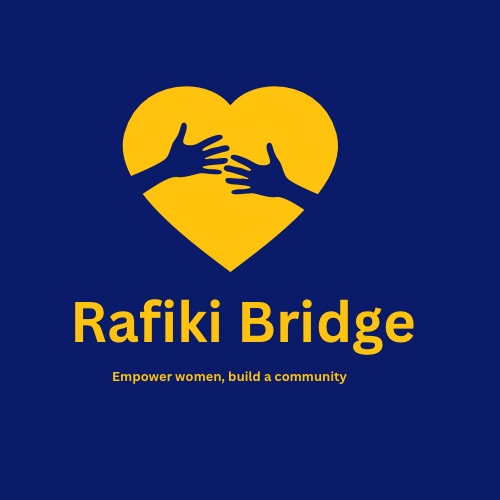Black Women and Homelessness in Toronto
- Rafiki Bridge

- Feb 28
- 3 min read
Did you know that Black women are disproportionately affected by homelessness and housing insecurity? In Toronto, Black individuals make up 8.8% of the general population but account for over 25% of the homeless population.* This disparity is even more alarming for Black women, who often bear the brunt of racial and gender-based inequalities.
A report by the Canadian Women's Foundation highlighted that racialized women, including Black women, are more likely to experience poverty and domestic violence—factors that significantly contribute to homelessness. For refugee and immigrant women, the challenges multiply, with language barriers, employment struggles, and cultural dislocation adding layers of difficulty.
WHY YOUR SUPPORT MATTERS MORE THAN EVER
One of the ongoing challenges in Black communities is healthcare access and awareness, particularly when it comes to menstrual and reproductive health. Black women face higher rates of conditions such as fibroids, endometriosis, and maternal health complications, yet these issues remain under-addressed in mainstream healthcare discussions.

In a world where resilience is often demanded of Black women, many continue to navigate systemic barriers with remarkable strength. Yet, beneath the exterior of perseverance lies a need for genuine support—especially for those facing homelessness, displacement, or systemic inequities. At Rafiki Bridge, our mission is not just about offering aid but about championing the empowerment of Black women through tangible, life-changing initiatives.
How rafiki bridge is making a difference
Bridging circles program
Through our Bridging Circles program, Rafiki Bridge directly supports Black women and women of African descent in refugee communities and women facing homelessness in Toronto. Our recent participation in the African Centre for Refugees Annual Conference allowed us to serve over 150 women with not only essential sanitary pads but also mentorship sessions. These interactions are more than just moments of relief—they are steps towards lasting empowerment.

We also engage with shelters and organizations like Sojourn House and Eva's Initiative for the Youth, providing tailored support to women and youth. These partnerships ensure that our resources reach those who need them most, fostering safe spaces for healing, growth, and community building.
By prioritizing health education and access, we continue the fight for health equity—a cause that echoes the struggles and triumphs of Black leaders in history who fought for justice and equal rights.
MENTORSHIP & ADVOCACY

At Rafiki Bridge, we believe in fostering leadership and mentorship among Black and immigrant women through:
✨ Skill-building workshops that promote self-sufficiency
✨ Networking opportunities that connect women with mentors and community leaders
✨ Advocacy efforts that amplify Black women’s voices in social and economic spaces
By investing in women today, we honor the legacies of those who came before us and ensure that Black history is not just remembered but continued in action.
BE PART OF THE CHANGE
Black History Month is not just about looking back—it’s about moving forward. It’s about turning awareness into action and ensuring that the progress we celebrate continues for generations to come.
At Rafiki Bridge, we invite you to join us in making a difference. Whether through donations, volunteering, or partnerships, your support helps us provide resources, mentorship, and advocacy for Black and immigrant women who need it most.
Together, we can bridge the past and empower the future.
Get Involved Today!
Visit our website or follow us on social media to learn more about our initiatives and how you can support our mission.
_edited.jpg)
Comments